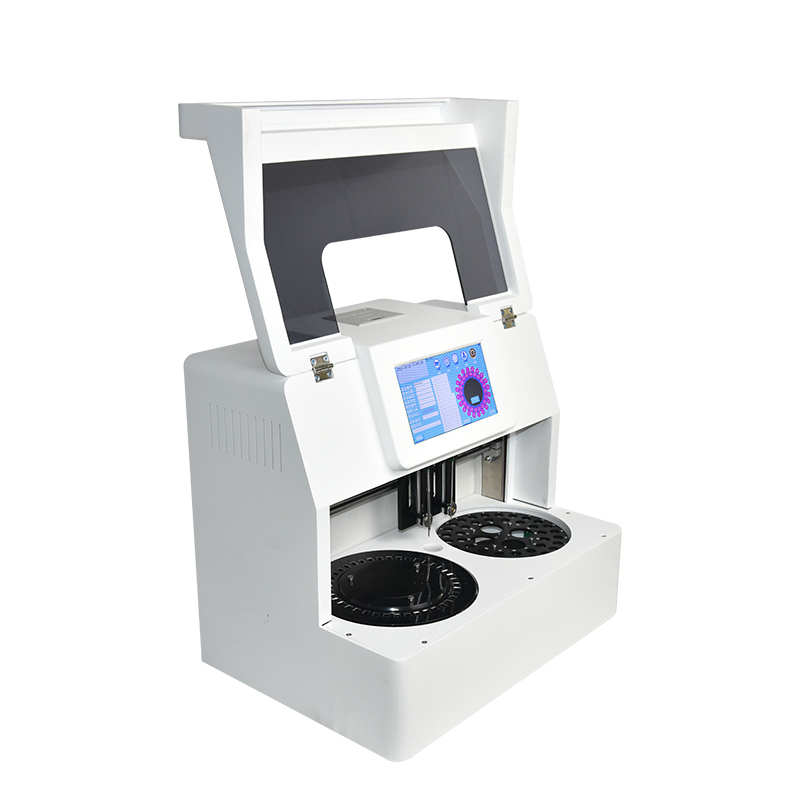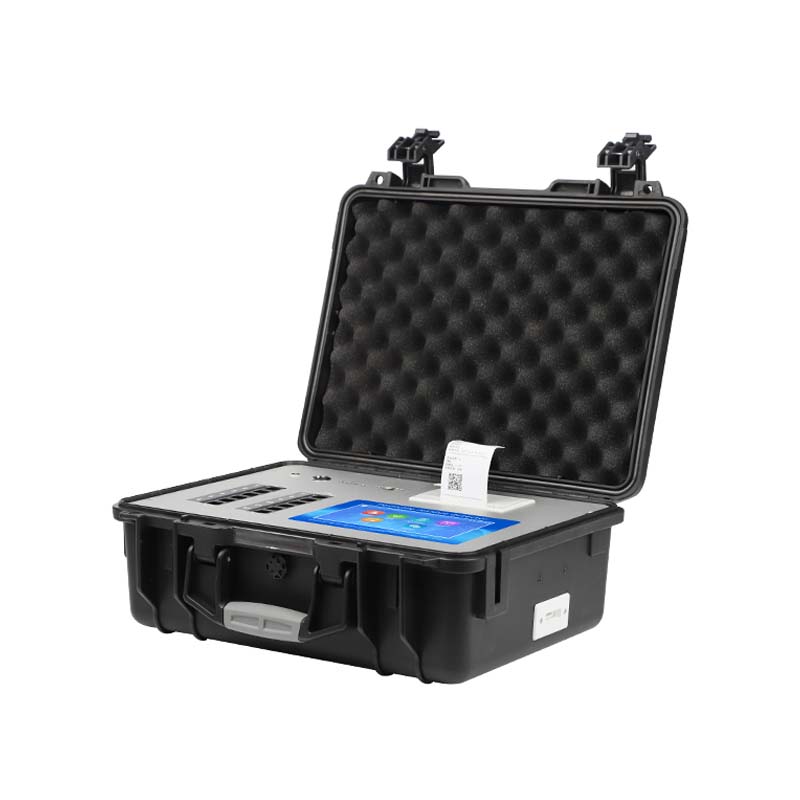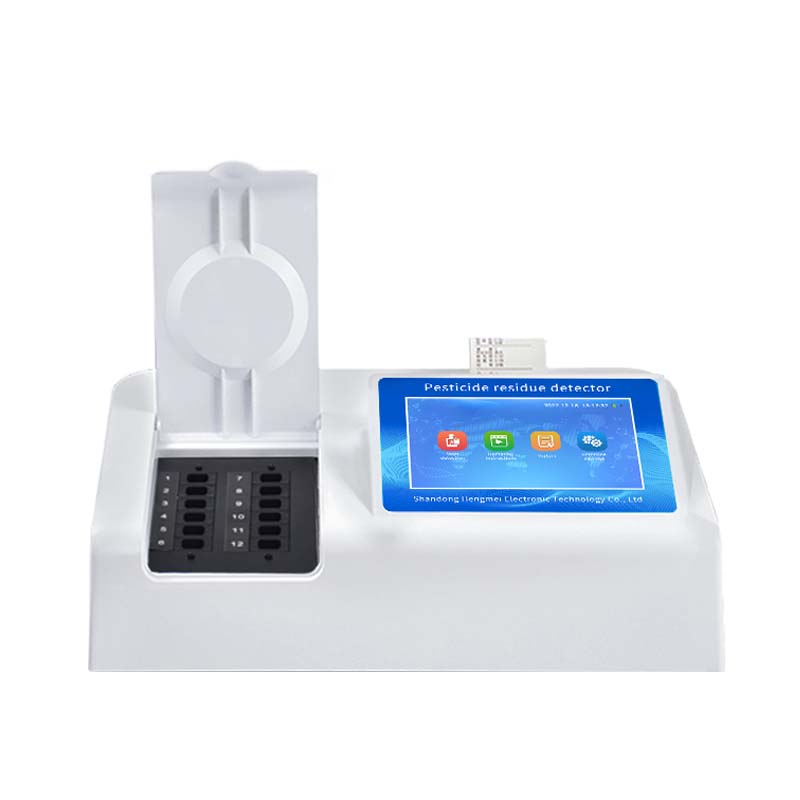
Instrument Overview
The fully automatic pesticide residue detector is mainly used for quantitative analysis of pesticide residue components in samples such as vegetables and fruits. The detection system mainly includes functional modules such as project parameters, reagent location, instrument calibration, settings, sample information, result query, initialization, and overall cleaning. It has the characteristics of moderate analysis speed, no cross contamination, few consumables, and open reagents.
It can be widely used for pesticide residue detection in vegetables and fruits in departments such as product quality supervision and inspection, health and epidemic prevention, environmental protection, business management, vegetable wholesale markets, vegetable production bases, supermarkets, shopping malls, pesticide residue monitoring systems, etc.
Basic Principles
The fully automatic pesticide residue detector is developed using the principles of enzyme inhibition and photoelectric colorimetry. Under certain conditions, organophosphate and carbamate pesticides have inhibitory effects on the normal function of cholinesterase, and their inhibition rate is positively correlated with the concentration of the pesticide. When a certain amount of organophosphorus pesticides or carbamate pesticides are present in the sample extraction solution, enzyme activity is inhibited and the absorbance increases. Based on this rate of change, the residual amount of pesticides in the sample can be determined.
Instrument structure composition
The main structural components of the instrument host are:
Display screen: 7-inch touchable display screen
Detection disk: 40 channel detection disk, colorimetric dish capacity of 500uL, detection disk with 37 ℃ constant temperature system
Printer: Thermal printer
Sample addition system: composed of motion motors and pipelines, etc
Feature Introduction
1. Humanized interface, easy to operate
2. Automatic blank calibration.
3. Add sample needle level sensing to avoid cross contamination.
4. The colorimetric dish is automatically cleaned and can be reused
Technical Specifications Table
Instrument type: Split type
Analysis method: Enzyme inhibition method
Measurement wavelength: 410nm
Light source: Monochromatic cold light source
Sample positions: 40, all subsequent automated processing after placing the samples.
Reaction position: 40 colorimetric cups made of special materials, with the machine automatically adding samples and reagents to the reaction cups.
Reaction cup temperature: 37 ± 0.1 ℃, the machine has a constant temperature function.
Reflection cycle: 42 seconds per item
Reagent positions: 4, compatible with domestic brand reagent sizes, automatic reagent addition.
Reagent probe: equipped with liquid level detection and anti-collision safety protection function
Software: Can be connected to the upper computer for linkage, the whole machine comes with a workstation (can be operated independently), and can be uploaded through the network
Printing: Multiple printing formats can be freely selected, and the machine has a built-in thermal printer.
Power supply: AC 220V, 50Hz, 102W
Weight: Approximately 13KG
Volume: 428mm * 305mm * 380m
Software: Can generate and upload files: Upload the selected sample test results to a storage location. Can connect with local food and drug regulatory platforms and upload data in real-time.
Software background: it has Internet background expansion function and large screen display function to facilitate statistical supervision of government units
Article address:http://www.hmfoodtesting.com/nycl4/156.html

 Current
location:
Current
location: +86
17853698681
+86
17853698681









